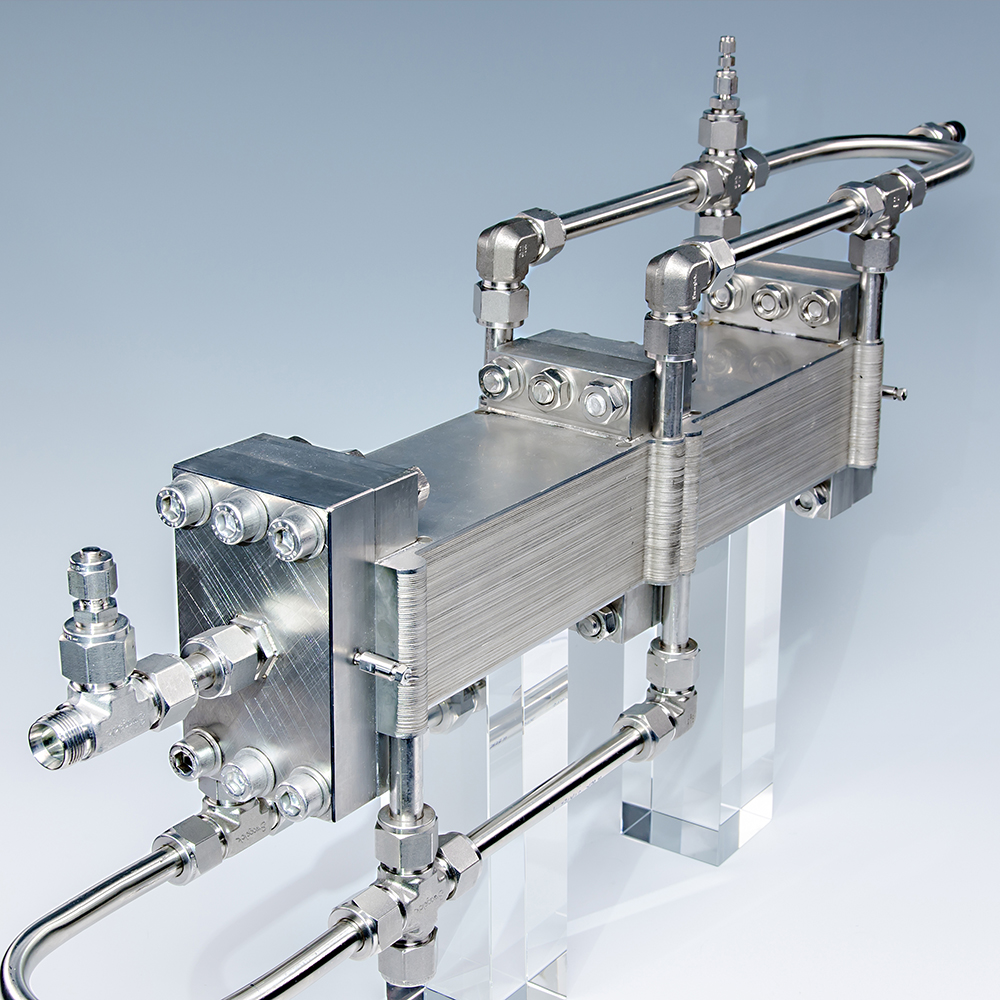„We show you the way to design your chemical processes safe and flexible“
When identifying the weaknesses and limitations of a process and in the selection and the design of suitable reactors and devices, we are taking advantage of our extensive experience from more than 20 years. Building on this, we carry out customized, experimental process development in a lab environment which is focused on continuous processes.
The use of micro- and flow reactors respectively brings the following advantages:
- Higher product selectivity and yield in many organic reactions by minimizing side reactions,
- production of materials with tailored properties (for instance particle size, morphology) by precise control of process conditions,
- accelerated development and optimization of new chemical processes,
- quick adaptation to changing process parameters,
- efficient, sustainable and cost-effective production due to a reduced use of raw materials and energy.
Ozonolysis, halogenation reactions, the synthesis of ionic liquids, nitration, hydrogenation, epoxidation and ethoxylation reactions as well as polymerizations are classic examples that benefit from being processed in flow reactors. Besides these classical reactions we currently deal with the following reaction classes:
- Photochemistry,
- heterogeneously catalyzed organic reactions,
- synthesis of reactive intermediates (such as Grignard reagents),
- nanoparticle syntheses.
Regardless if you want to increase the efficiency of a process or you want to open up new paths, we are the right partner for you.

 Fraunhofer Institute for Microengineering and Microsystems IMM
Fraunhofer Institute for Microengineering and Microsystems IMM